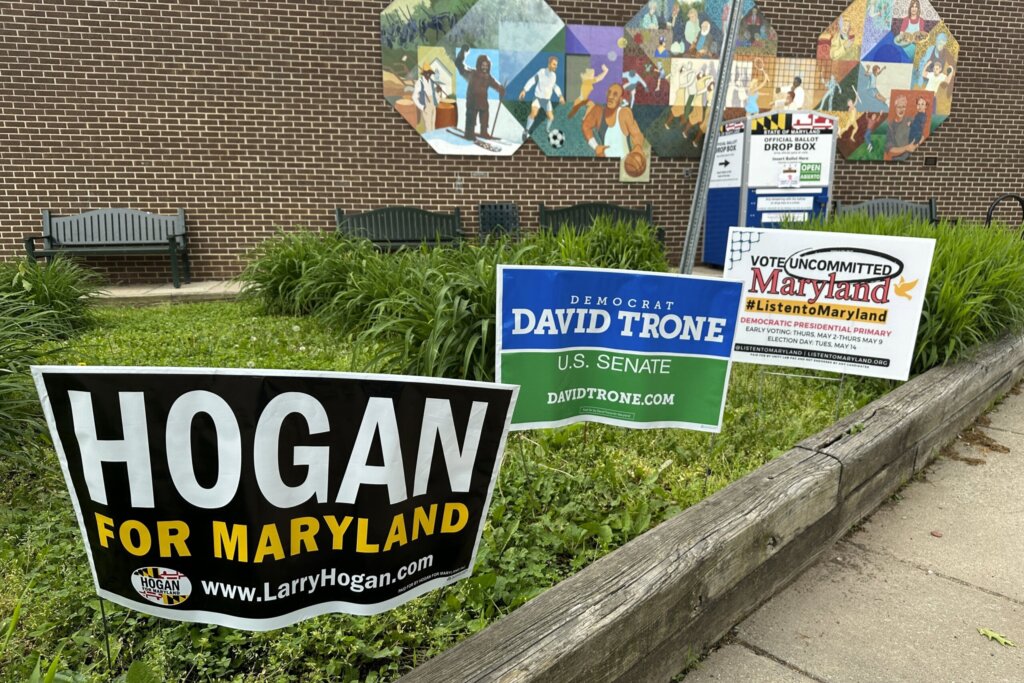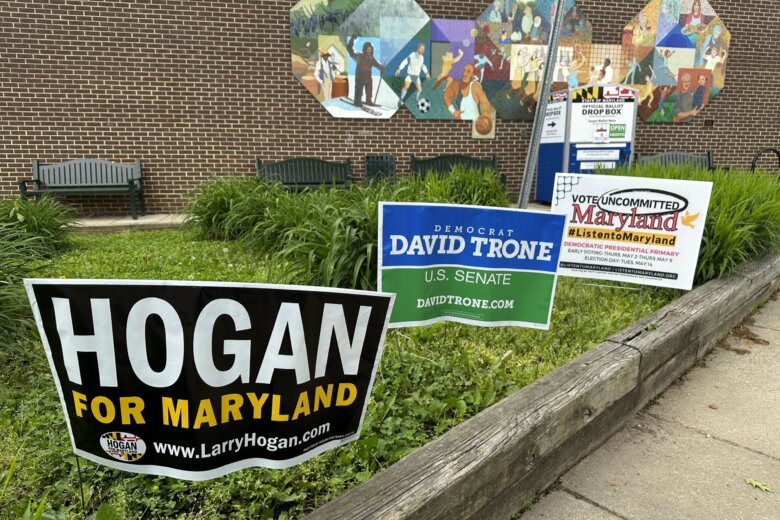Ranked-choice voting advocate sees flaws in Maryland primary results

A national organization advocating for wider use of ranked-choice voting (RCV) is pointing to recent Maryland primaries to bolster its argument that it’s preferable to have candidates who win outright majorities rather than those who win elections with a fraction of the vote.

A national organization advocating for wider use of ranked-choice voting (RCV) is pointing to recent Maryland primaries to bolster its argument that it’s preferable to have candidates who win outright majorities rather than those who win elections with a fraction of the vote.
The group FairVote issued an analysis Friday showing that so far this year, 49 candidates have won statewide congressional primaries across the country with less than 50% of the vote. Five of those races were in Maryland: the Republican primary in the 7th District and the Democratic and Republican primaries in both the 3rd District and the 6th District.
“In our current single-choice voting system, a candidate can win an election with far less than 50% of the vote, meaning a majority of voters voted for someone other than the winner,” FairVote wrote in its analysis. “That presents two major problems for our elections:
- If the candidate is in a district safe for their party, they’ve essentially secured an office with just a fraction of a fraction of their constituents behind them.
- If the candidate is in a competitive district, they enter the general election weaker, without most of their party behind them.”
FairVote is a leading national advocate for ranked-choice voting, which allows voters to rank candidates as they cast their ballots. The theory is that a winner of a primary or general election will be the choice of a majority of voters — even if they weren’t the top choice of a majority of voters initially.
In Maryland’s 3rd District this year, Robert Steinberger won the GOP primary with over eight opponents, with 25.1% of the vote, while state Sen. Sarah K. Elfreth (D-Anne Arundel) won the 22-candidate Democratic primary with 36.2% of the vote. She’s the overwhelming favorite to replace outgoing U.S. Rep. John Sarbanes (D-3rd).
“The 3rd District is safely Democratic, meaning Elfreth will have an easy victory come November,” FairVote wrote. “Essentially, this seat was chosen by a fraction of a fraction of voters.”
In the 6th District, Maryland’s most competitive, both nominees, former U.S. Commerce Department official April McLain Delaney (D) and former Del. Neil C. Parrott (R-Washington) won their multicandidate primaries with 40.4% and 45.9% respectively, a rare case of general election candidates competing in a swing district who did not win majorities in their respective primaries.
The other race in Maryland was the Republican primary in the heavily Democratic 7th District, where Scott Collier won 47.2% of the vote to beat two primary challengers for the opportunity to take on the entrenched Democratic incumbent, Rep. Kweisi Mfume.
“While many of the candidates currently winning crowded primaries with 25 or 30 percent of the vote might also win an RCV primary, they’d go into the general election with majority support and a stronger mandate,” FairVote wrote. “More voters would be invested in their party’s nominee, whether they ranked them first, second, or later on their ballots.”
In Maryland, ranked-choice voting has been on the books for municipal elections in Takoma Park for many years. It is also being used in statewide elections in Maine and Alaska and in several other municipalities across the country, including New York City.
Maryland state lawmakers have so far resisted efforts to expand ranked-choice voting into larger jurisdictions in the state.

